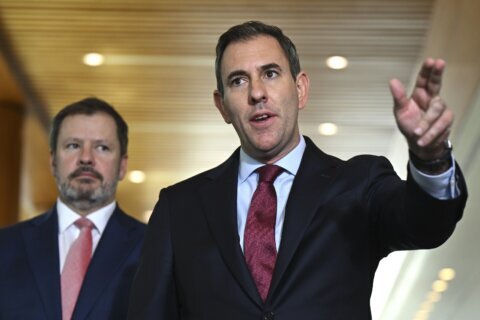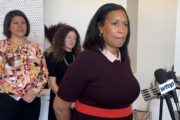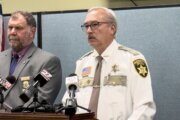WELLINGTON, New Zealand (AP) — Early voting began on Monday in New Zealand for the nation’s Oct. 14 general election, with conservative contender Christopher Luxon casting his ballot.
Early voting also began in some parts of Australia in a referendum that would enshrine in Australia’s constitution a mechanism for Indigenous people to advise Parliament on policies that affect their lives.
In New Zealand, the campaign of Prime Minister Chris Hipkins faced a setback on Sunday when he tested positive for COVID-19. He said he would isolate for five days or until he returned a negative test, but planned to continue with some engagements over Zoom.
Hipkins and his liberal Labour Party have been lagging behind the opposition National Party, led by Luxon, in opinion polls.
“After a rough night I woke up this morning feeling pretty unwell and just got this test result,” Hipkins wrote on Instagram, and said he’d work twice as hard when he got back out on the campaign trail.
Luxon on Sunday released a 100-day action plan he said would deliver tax relief, rebuild the economy and restore law and order. “New Zealanders have waited six long years for a government that focuses on what matters to them, and gets things done,” Luxon said.
In Australia, where voting is compulsory, some 98% of eligible Australians have signed up to vote in the referendum on the Indigenous Voice to Parliament.
Early voting began in four states or territories Monday, and the remaining four will begin voting on Tuesday after observing a public holiday Monday.
The “Yes” campaign is lagging behind in opinion polls but Prime Minister Anthony Albanese, who supports the potential change, said he remains hopeful.
“I know a lot of people have not made up their mind, and what I know is that the feedback, when people talk through these issues, they arrive at a ‘Yes’ vote pretty comfortably,” Albanese told reporters in Melbourne. “I sincerely think the key to the next fortnight is those one-on-one conversations with people to accept this request of the overwhelming majority of Aboriginal and Torres Strait Islander peoples.”
Political opponents say the referendum effort should have been bipartisan and that many unanswered questions remain on the details of how the Voice would work in practice.
In a coincidence, the election and referendum are both taking place on Oct. 14.
Copyright © 2024 The Associated Press. All rights reserved. This material may not be published, broadcast, written or redistributed.







